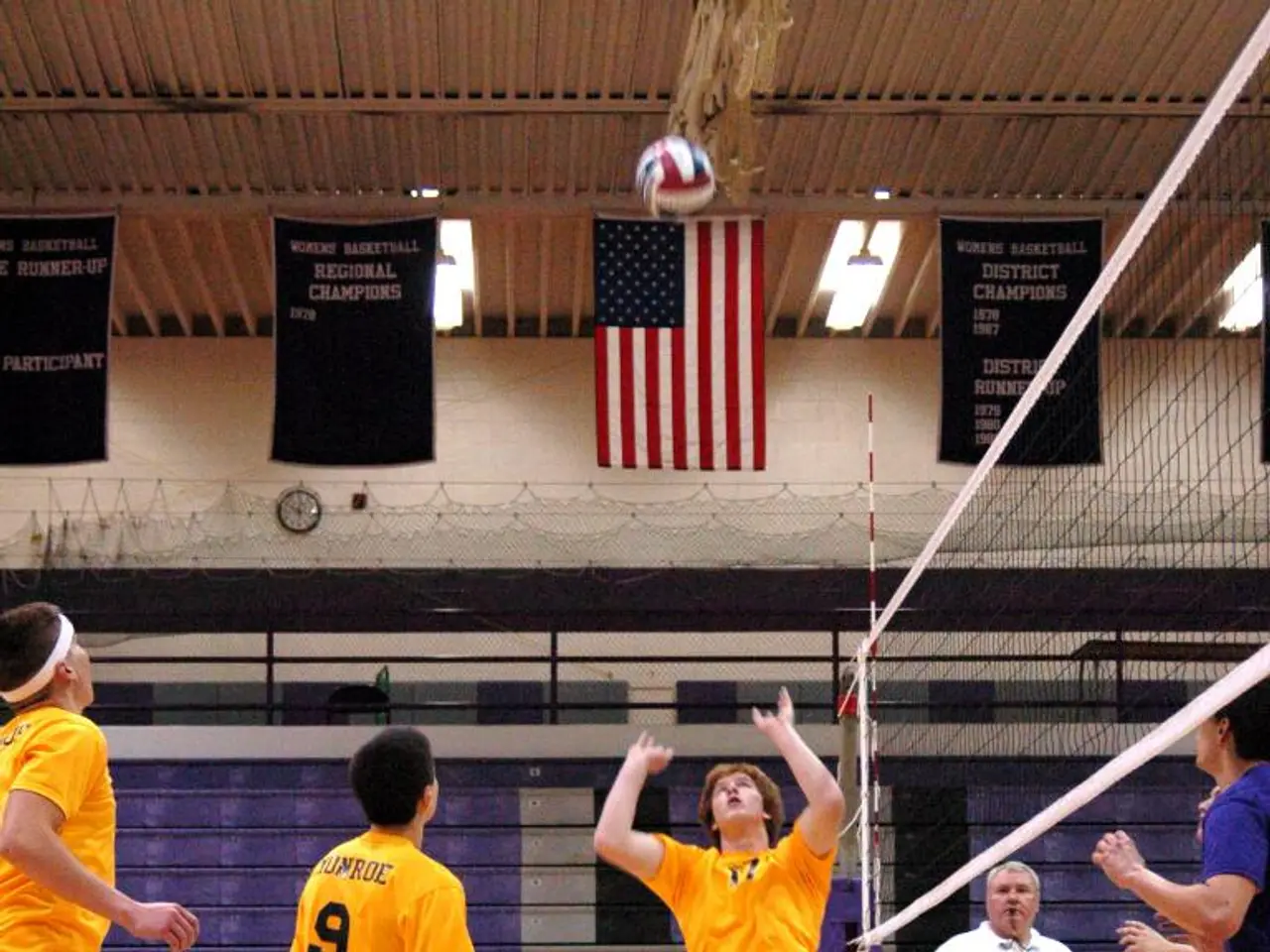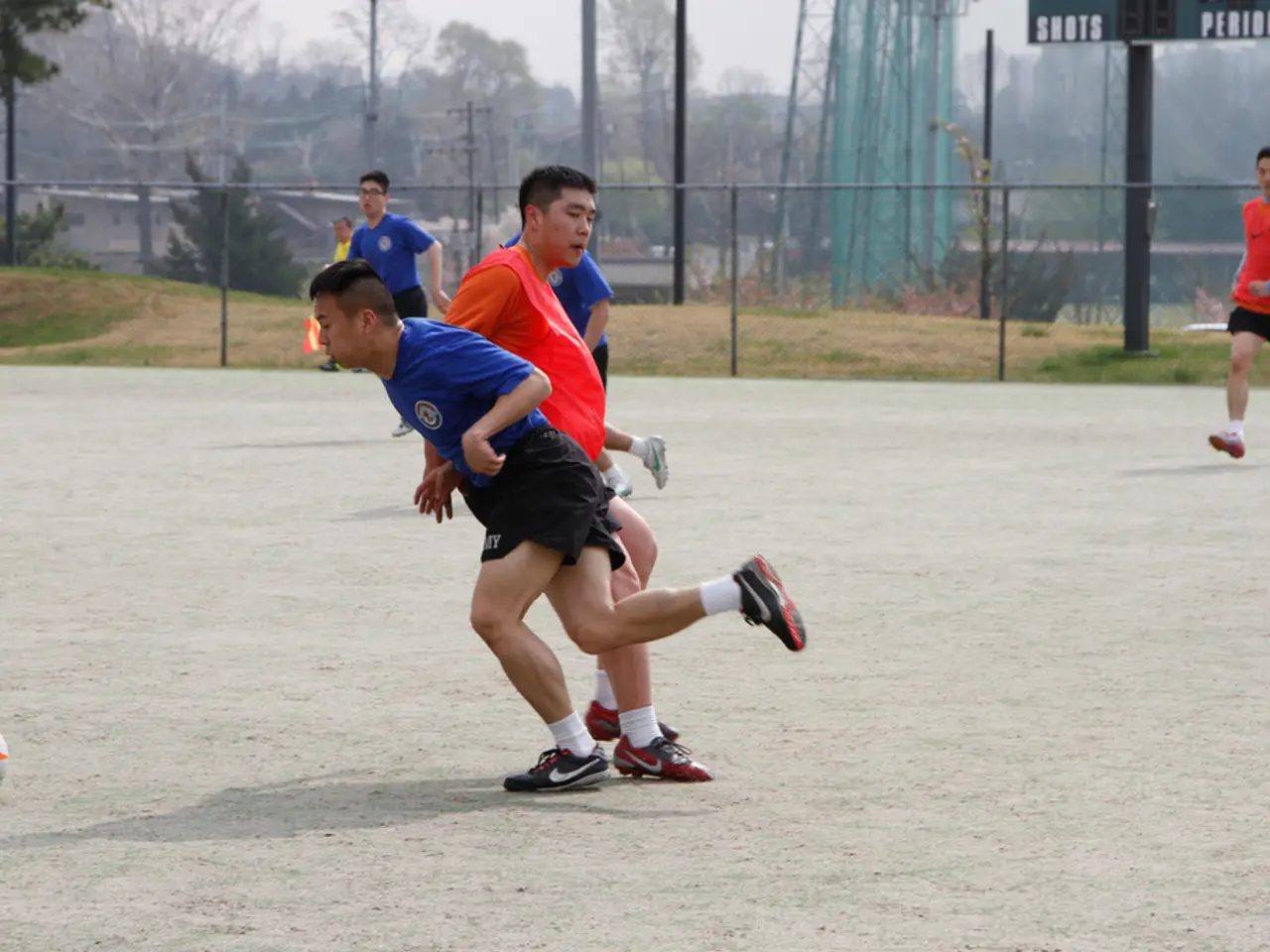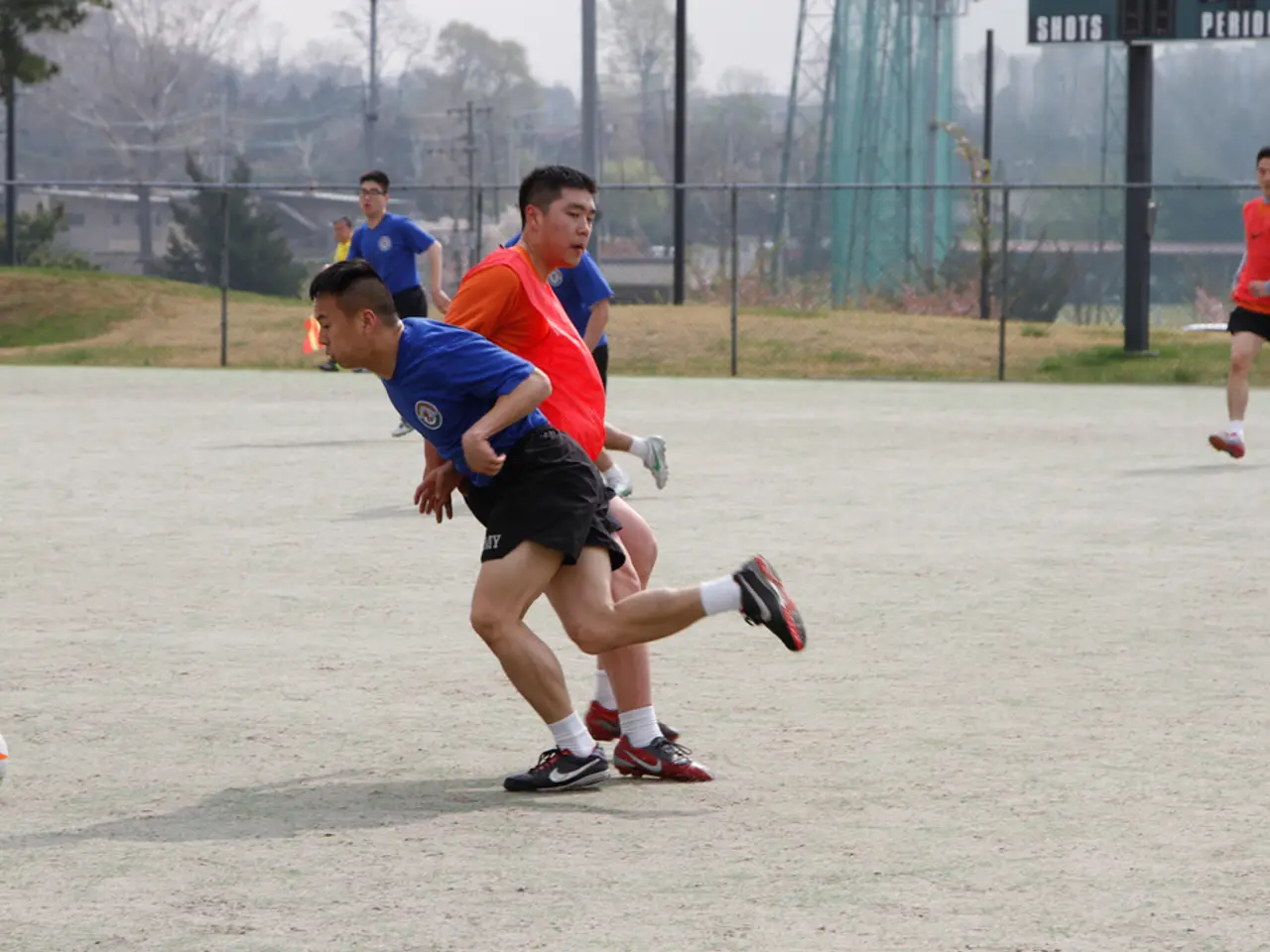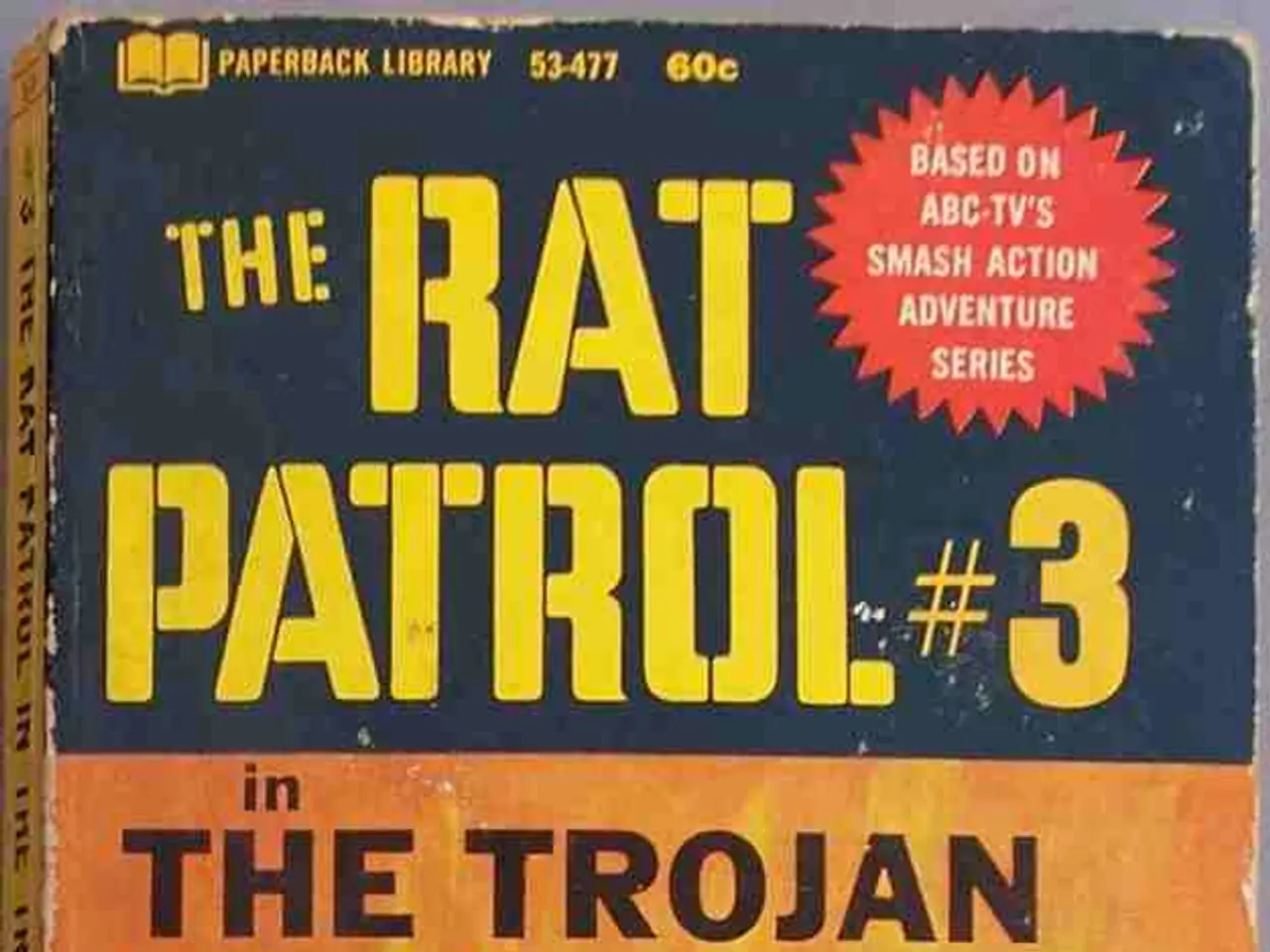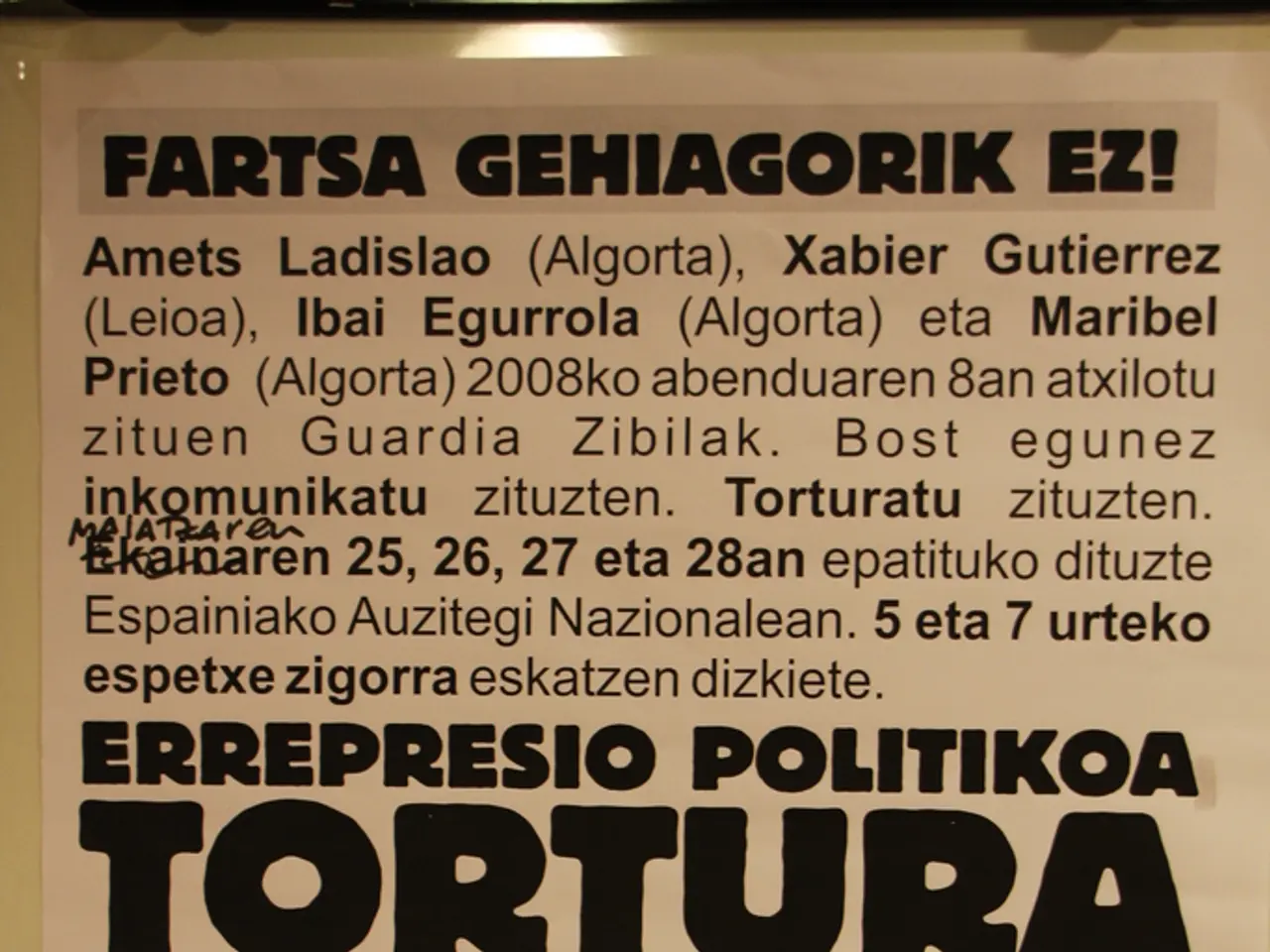Tighter regulations imposed on advertising for gambling in the Netherlands
In a move to curb the potential risks associated with gambling addiction, the Netherlands has implemented significant and stringent restrictions on gambling advertising. The key measures, primarily aimed at protecting young adults and vulnerable groups, have been introduced over the past year and are set to become more restrictive in the coming years.
One of the most notable changes is the complete ban on gambling sponsorship in sports and public advertising. As of July 1, 2025, the Dutch Gambling Authority (Kansspelautoriteit or KSA) enforces a full ban on gambling sponsorship in sports. This includes prohibiting gambling logos on sports shirts, advertisements in public spaces, and any promotional materials. The KSA has reported that public displays of gambling branding have virtually disappeared since the ban's enforcement[1].
The KSA is also actively monitoring compliance, with penalties for violations. For instance, BetMGM faced penalties for using a 17-year-old football star in promotional material, violating rules against targeting minors or using appealing role models under 18[1].
In addition to the ban on sponsorship, the KSA has introduced monthly deposit limits as a protective measure. From October 2024, deposits over €700 monthly trigger a suspension of further payments until the month ends for the general public. Young adults aged 18-25 face a stricter ceiling of €300 per month. This policy has already resulted in a significant 31% reduction in average player losses and a decline in high-risk gambling behaviors[2].
The KSA has also targeted illegal gambling advertisement operators by imposing weekly substantial fines (up to €75,000 per week and €225,000 maximum) and taking websites promoting illegal gambling offline after non-compliance[3].
These measures reflect the Netherlands' robust strategy to limit gambling exposure, particularly among young adults, by restricting advertising channels and controlling gambling behaviors through financial safeguards. The KSA emphasizes protecting vulnerable groups from addiction risks and is prepared to take strong enforcement actions against violations, signaling a no-tolerance approach moving forward[1].
The wave of advertising for sports bets and lotteries online occurred after the legalization of online gambling in the Netherlands in 2021. However, the government aims to tackle the impacts of legal gambling with the new law. Approximately €486 million was wagered on sports betting in the Netherlands in the first half of 2022. Despite this, the number of patients needing treatment for gambling addiction at Hervita addiction clinic in Zeist has doubled since the legalization of online gambling in the Netherlands[4].
The age group of 22 to 35 years is particularly affected by the increased gambling in the Netherlands[5]. The KSA aimed to protect young adults from gambling addiction with these measures, as they are considered a vulnerable group due to their increased likelihood of developing gambling-related problems[5].
From 2024, providers will have even less advertising space, and online marketing and targeted email outreach will be prohibited from targeting the 18-24 age group. Further restrictions could almost completely ban gambling advertising on the internet and for sports bets[6].
These clubs will have to find new, liquid partners within two years due to the ban on betting provider sponsorships in the Dutch league from 2025. Out of the 18 clubs active in the Eredivisie, the highest Dutch league, 15 are supported by betting providers as main sponsors. This support will be banned from 2025[7].
The aim of legalizing online gambling was to combat the illegal gambling market[8]. However, the new regulations regarding gambling advertising were implemented on January 1, 2023. As of this date, providers of table and slot games, as well as sports betting, are no longer allowed to engage in untargeted advertising[9].
References: [1] Kansspelautoriteit (2022). 'Wet op de Kansspelen' (in Dutch). Retrieved from: https://www.kansspelautoriteit.nl/wet-op-de-kansspelen [2] Kansspelautoriteit (2023). 'Maandelijkse afbetalingslimieten' (in Dutch). Retrieved from: https://www.kansspelautoriteit.nl/actueel/nieuws/2023/02/14/maandelijkse-afbetalingslimieten [3] Kansspelautoriteit (2022). 'Illegale kansspelen' (in Dutch). Retrieved from: https://www.kansspelautoriteit.nl/actueel/nieuws/2022/08/31/illegale-kansspelen [4] Hervita (2022). 'Verslag jaar 2021' (in Dutch). Retrieved from: https://www.hervita.nl/downloads/verslag-jaar-2021/ [5] Kansspelautoriteit (2022). 'Kansspelen onder jongeren' (in Dutch). Retrieved from: https://www.kansspelautoriteit.nl/kansspelen-onder-jongeren [6] Kansspelautoriteit (2023). 'Nieuwe regels voor kansspelreclame' (in Dutch). Retrieved from: https://www.kansspelautoriteit.nl/actueel/nieuws/2023/01/01/nieuwe-regels-voor-kansspelreclame [7] Kansspelautoriteit (2023). 'Verbod op kansspelreclame' (in Dutch). Retrieved from: https://www.kansspelautoriteit.nl/actueel/nieuws/2023/01/01/verbod-op-kansspelreclame [8] Kansspelautoriteit (2021). 'Wet op de Kansspelen' (in Dutch). Retrieved from: https://www.kansspelautoriteit.nl/wet-op-de-kansspelen [9] Kansspelautoriteit (2023). 'Nieuwe regels voor kansspelreclame' (in Dutch). Retrieved from: https://www.kansspelautoriteit.nl/actueel/nieuws/2023/01/01/nieuwe-regels-voor-kansspelreclame
Online casinos in Germany, with their sports offerings, are less prominent in the Dutch market due to the country's stringent regulations against gambling advertising. In contrast to the surge in online gambling in the Netherlands after its legalization in 2021, the Dutch Gambling Authority (Kansspelautoriteit or KSA) has implemented measures to protect young adults and vulnerable groups, such as prohibiting gambling sponsorship in sports, setting deposit limits, and minimizing online marketing. These initiatives aim to reduce gambling addiction risks and target high-risk behaviors.

